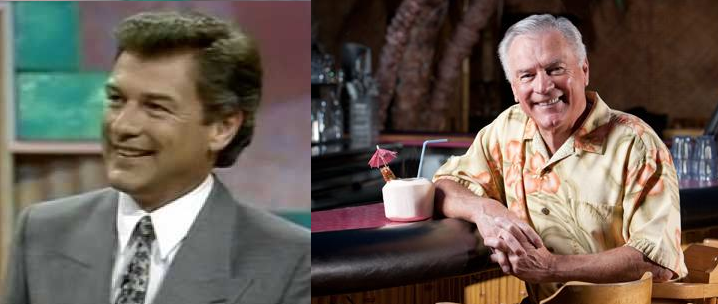
Interview: Wayne Cox
In anticipation of the premiere of The Search for Canada’s Game Shows, Christian Carrion talks with an iconic Canadian game show host and television personality.
Wayne Cox should be a familiar name to the many fans who enjoy the game shows of Canada. After a 20-year career as a disc jockey and freelance emcee which began in the late 60s and extended well into the 80s, Wayne hosted his first game show, Second Honeymoon, for CTV in 1987. Talk About, a word association game for which Mr. Cox is most fondly remembered, premiered the following year and was broadcast across Canada, as well as in the US in syndication. Two years later, Wayne assumed hosting duties of the charades game Acting Crazy before finding new career success as a weatherman on Global B.C., a job he would hold until his retirement from broadcasting in 2012. Cox, who still occasionally works as a voice-over artist, has lent his narrative talents to The Search For Canada’s Game Shows, a new and ambitious documentary series which chronicles the history of the game show genre in Canada, and discusses programs such as The Mad Dash, Pitfall, Definition, and Front Page Challenge. In celebration of the documentary’s premiere this Thursday evening, January 16, at 7pm on Game TV, Wayne Cox graciously spoke with me about his experiences in the world of game shows, his thoughts on the genre today, and the impact game shows have had on Canada as a whole, among many other topics. Here are some excerpts from my interview with Wayne.
So, The Search for Canada’s Game Shows. I’ve seen the first two episodes already, and I think everyone did a phenomenal job, including you. There seemed to have been a big push for people to donate footage they may have for use in the documentary. Is footage of Canadian game shows hard to find? There doesn’t seem to be a long-standing or particularly rich history of rerunning game shows, especially the older stuff from the 70s and 80s.
Yeah, I don’t know why that is. I’m not sure if the producers aren’t pushing it as much, or if there just isn’t a spot for it on any of our networks. I’m not sure. I know one thing we were really concerned about—on Talk About, anyway—was the content. Other than the fashion, of course, which you can always look at and laugh about. But the content, you know – if the topic was a person, and the person had passed away, and there’s no mention of whether the person is, you know, dead. To have those things running, you know…I think some people were very leery about that.
Sure. I think that even happens today—when there’s a hurricane or violence in a particular city, and The Price is Right just happens to give away a trip to that city, and there’s this big scramble to replace it or apologize. Did that ever actually happen on Talk About?
Did it ever happen? I don’t think so. Some of the topics on Talk About were people, and now that it’s going to re-run in Canada, I guess we’ll see how many of the people who were involved in the puzzles are still with us. If the name comes up and the person has passed away, it sort of behooves the host to mention that the person has passed away and not let that moment slip by. That comes with the territory, I guess.

Now, you were hosting a talk show around 1988 on CJOR, around the time you got the job on Talk About. Is that correct?
Oh, yeah, that’s right, a radio talk show, yeah. I only did that for a year. And then…(laughs) they changed formats. They went from talk radio to classic rock, so that kind of left a bunch of us out.
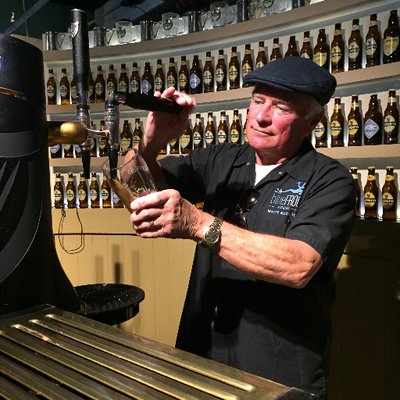
What kind of talk show was it? Was it a public service type of thing where you were talking to government officials, or was it celebrities?
Oh, everybody. It was one of those talk shows where you have guests, or you have guests on the phone, or you have guests call in and comment on things. Just a regular day-to-day radio talk show. Every day was different, but there was no real focus to it or any political slant or anything.
That seemed to be a popular radio format in the late 80s; you had guys like Tom Snyder and Larry King doing their radio shows live coast-to-coast. There’s probably still an audience for that type of programming today, with the proliferation of podcasts and things like that.
Oh, yeah.
Now how did you end up with the job on Talk About? How did that come about?
Let’s see. I had been doing television before—a talk show and things like that. Then I got into radio. I was always being sent out on auditions from my agent, for commercials or whatever happened to come up. This game show just happened to come up, and I went into the audition not even really knowing how to play the game. I was given this sort of script for it, went in, and ran through it a couple of times. Mark Maxwell-Smith, the creator, was there, and he liked what he saw, and just like that, we were in production.
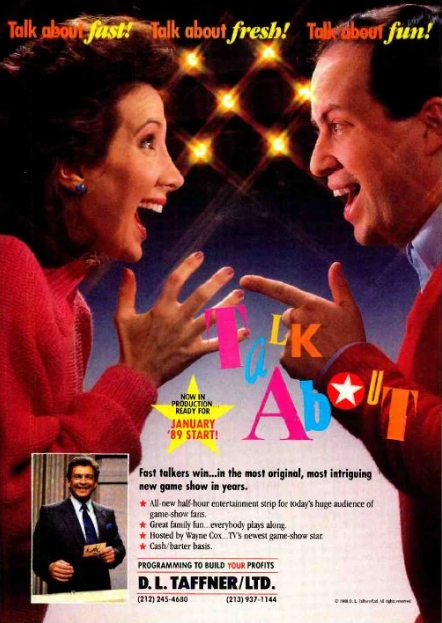
Mark Maxwell-Smith is a massively creative guy. I know that he had a hand in the Supermarket Sweep of the 90s, and he did a lot of writing for a show called The Cross-Wits…I was pleasantly surprised to learn that he was the mind behind Talk About. Is that the show you’re most remembered for?
Oh, yeah. I still have people who come up to me and tell me they were on the show. I’m still in the Vancouver area, and it was shot here in Vancouver at the CBC studios. It was a co-production with D.L. Taffner out of New York, and it was syndicated on all the Fox owned-and-operated stations in the US, and it went across on CBC as a network show here. So yeah, even 30 years later, people come up and say “I was a contestant with you,” and tell me how much fun they had. Canadian game shows have always been, uh…the budgets haven’t been all that big, so as a result, some of the prizing couldn’t really keep up with US game shows. But the game was so sound. As you mentioned, Mark Maxwell-Smith was such a genius when it came to creativity, and especially the game show business because he had been in it for so long. It was his job to try and create game shows for D.L. Taffner, and he came up with Talk About. As far as Canadian game shows are concerned, though, I don’t think the prizing has ever been able to catch up with the US.
Right. I think that, like you said, if the game is sound enough, it doesn’t really matter what you give away. We proved that in America with shows like What’s My Line; stand in front of a bunch of celebrities and have them guess what you do for a living and win $50 max. I mean, that show was on for two decades, and the prize never really changed.
Right.
One of the interesting things I noticed while watching this documentary was about Jack Barry and Dan Enright’s relationship to Canadian game shows. As someone who’s been watching this type of television all his life in America, and as someone who’s very familiar with the film Quiz Show, the Barry-Enright story is essentially “They got caught rigging shows, they went away for a while, and then they came back with The Joker’s Wild.” It was very interesting for me to hear the other side of that story, and to hear how much they did to advance this segment of broadcasting in Canada.
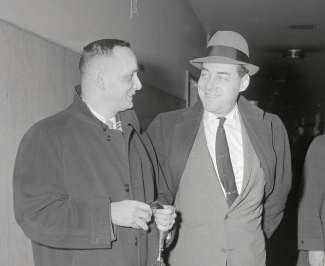
I’ve heard so many stories about them, and one in particular from Mark Maxwell-Smith, because he worked with them in the US. In the days when they were giving answers to the questions, I don’t think there were any regulations for that, really. What they were doing was trying to make an entertaining show. If you could get a guy who’s likable to stay around for a while, then great, that’s entertaining. Up until someone blew the whistle and said, you know, “You can’t be doing that,” I don’t think it was set in stone that you couldn’t. I could be wrong about that, but I’m thinking that’s the story I heard way back when. I think during that scandal time, it was also before they had a Standards and Practices department that looked into all of these kinds of things. I can remember, while working on Talk About, I couldn’t be in contact with the contestants. The contestants couldn’t talk to anyone on the staff. They were chaperoned everywhere on set so that they couldn’t find out what the puzzles were about and pre-load their imagination as to what some of the answers might be. Even to go to the washroom, they were escorted there and back so they wouldn’t have contact with anyone on the show. Barry and Enright coming to Canada, though, was a big shot in the arm for all the producers and production companies here to get an industry going as far as game shows were concerned.
What are some of your favorite Canadian game shows?
Was Bumper Stumpers down there?
Oh, yeah! We had it in reruns on USA and GSN for years. I loved that show.
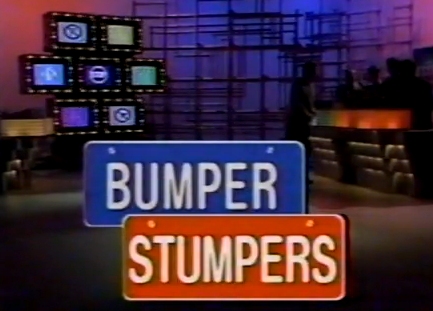
I loved that show too. I thought it was really creative. I can remember watching that from time to time. Most of the game shows here aired during the day, so when someone would say “Hey, I’ve been watching your show!” I’d say “Oh, are you feeling better now?” I figured that anyone watching daytime TV is either unemployed or sick in bed.
Right. Entertainment for those of us with communicable illnesses. (laughs)
Yeah! Other than, you know, Jeopardy or Wheel, which always ran in evenings.
Alex Trebek is an American institution. Is he just as respected and admired, or maybe even more so, in Canada?
Absolutely. We take great pride in always mentioning, if anyone cares to ask, that yes, he came from Canada. I’m not sure if Alex still has his Canadian citizenship, but certainly his ties to Canada are still strong. I know he maintains contact with the University of Ottawa, his Alma Mater, for fundraising events and things like that. We’re very proud. He’s one of ours. Look at Monty Hall! There’s another Canadian game show host. We had a magazine here in Canada that was called—I don’t know if it’s still running—Saturday Night. They did a huge story about Canadian game shows. I’m not sure what year this was, but they brought together a bunch of the great Canadian game show hosts, flew them all to Los Angeles, and did a photo shoot and a little story on each of us. That included Alex Trebek and Monty Hall. They came out for the big shoot, we had a great time. Sat around and compared notes, compared who we knew and who we worked with. It was a fun weekend in Los Angeles.
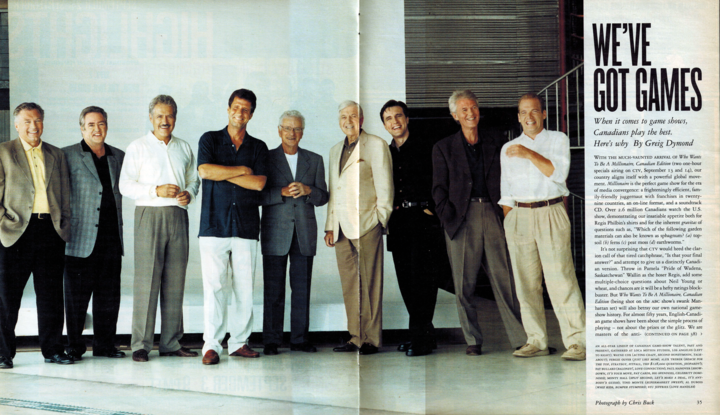
There are so many good hosts that came from Canada. You have Alex Trebek, Monty Hall, Jim Perry of Definition…
Alan Thicke.
Alan Thicke, yes! Even Howie Mandel—shock of the year when he made the transition to game show host, but he fell into the role so beautifully.
Howie was great on Deal or No Deal. I wish he was still doing it, because it looked like he had so much fun doing that show.
You were a weatherman for about 20 years total, weren’t you?
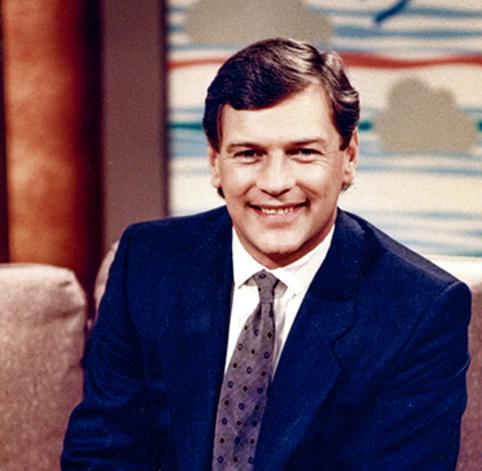
I was! I just wrapped that up, actually. That came at the end…well, not quite the end. When I was freelancing everything, on radio and TV, I used to fill in for one of the local weathermen on TV here. Then I got into game shows and talk shows and all of that. I’m retied now, but by the end of my career it was about 20 years. It was good. Partly cloudy with a chance of showers, how could you go wrong?
Sounds good to me. Why are weathermen such good hosts?
(laughs) You know, I don’t know! For the last number of years, there’s been a trend, especially in the US, of TV weathermen being meteorologists. For the longest time, it would just be a guy telling you whether it was going to rain or not; there was no science behind it. It was more of a personality-type thing on the newscast. I think that’s where you can find a weatherman could be a game show host. I mean, Pat Sajak was a weatherman in Los Angeles before he took over Wheel of Fortune. What do you need to know to be a weatherman in Los Angeles? Sunny sunny sunny sunny sunny. Not much. But it’s the way you get the message across. Pat was, and is, just a really likable guy. So yeah, the two jobs go together, strangely enough. Game show hosting is trickier than a lot of people think. There’s a lot of mental gymnastics going on as you’re playing the game, dealing with the contestants, dealing with the clock, knowing how much time each segment should have. You gotta get in, you gotta get out. And for a lot of games, you have to get the game to be over in the 22 minutes that you have. There’s a lot of juggling, especially with the clock. And with a live TV newscast, you’ve got three and a half minutes to get everything in there. They definitely go together. You can draw skills from either side.
I wonder if they don’t also have the common goal of providing information in a warm, clear way.
Yeah, especially when you’re dealing in game shows. Unless you’re doing a celebrity-driven show, the people playing the game are really just people off the street who aren’t used to the cameras, or the lights or the pressure. You’ve really got to be their friend. If you put them at ease, you’re going to have a better show.
Have you ever searched for yourself on YouTube?
Yeah, from time to time, just to see what clips there are of anything. It certainly turns back the hands of time, doesn’t it? Even with Talk About, that was 30 years ago. I don’t think there’s anything online about it, but my first game show was Second Honeymoon. I loved that show because it took the greed out of the game. It was based on sort of the same type of show as Newlywed Game, where you ask a question, get an answer, and if the other person matches your answer you get a point. So what the deal was, it was Mom and Dad and the kids. If Mom and Dad match the kid’s answer, they get a point, blah blah blah, you get to the end of the show, and the winner gets a second honeymoon for Mom and Dad. It was a terrific show. For a lot of the cases, Mom and Dad never even had a first honeymoon. They were fantastic prizes, too. Trips to Hong Kong, trips to Australia. Great show.

Have you seen this clip of Family Feud Canada that’s gone viral in the past few days?
The chicken one? The Popeyes Chicken?
Yeah! I was wondering if you had seen it. I read that Popeyes gave her $10,000 in free chicken. (laughs)
It went over my head when I first saw that clip, when they ask what Popeye’s favorite food is and this woman says “chicken”, and of course we’re all saying “spinach”. But if you don’t know Popeye, the cartoon guy from a million years ago, the only Popeye you might know is the chicken chain. So it made perfect sense ot her, and once I linked those two up, it made a lot more sense to me.
I think it was the confidence with which she gave that answer that won me over. (laughs) I think as long as game shows have that capacity to create moments like that, they’re not going anywhere. Their popularity ebbs and flows. I think it’s very strong right now.
Oh, I think so too, yeah. Look at the longevity of Wheel and Jeopardy. And The Price Is Right, there’s another one. They’ve been going for a million years, it;s just great entertainment for people.
You did a show called Acting Crazy. I’m not too familiar with it. What was Acting Crazy about? I know it was based on charades.
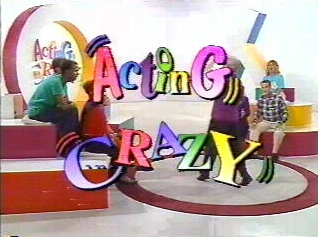
It was based on charades, yeah. We had two teams, and each team had two…house players, I suppose, who were there all the time. Then there were contestants and celebrities. They would all take turns in doing charades for their team. The faster their team could come up with the answer to the charade, the more points they got—or, the less points they got. The team with less points won, right? We went back and forth until we had a winner. It was great fun. Jo Anne Worley was one of the celebrities. We had Mickey Dolenz from The Monkees. Jimmie “J.J. Dy-No-Mite” Walker was one of them. It was a lot of fun, because it was charades. The people we had as our house players were very good. A couple of them were improv guys, and there were two sisters who played charades all the time at home when they were kids; that was their family game. And they came and auditioned to be our house players, and we thought they were terrific, so they were on just about every show.
And how long did that show last?
I think we did a couple of years, then took a couple of years off, and then did another year…probably got 3 or so years in the can. It went across Canada, but I don’t think it was ever syndicated in the US market.
Charades is such a natural game for television. I mean, talk about having a play-along factor.
Exactly. And that’s so big with all the games, is that playalongability. If that’s a word.
It is now. (laughs)
Well, we knew Talk About was going to be successful, because in the editing process—and of course, you couldn’t edit anything related to the outcome of the game, but if there was a technical glitch or something that all of a sudden had to be fixed up—we would see that the editors were playing along with the game. When you get the technical people to play along, who are fairly cynical with most things, you figure “Well, maybe we’ve got something here.” That’s what happened with Talk About.
Oh, it’s massively fun to play along with. What are you up to now? How long have you been retired?
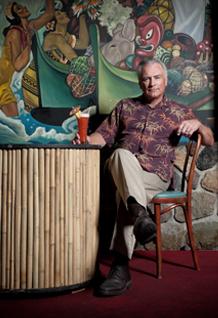
Well, I think it’s been five or six years now. I’m loving every minute of it, yeah. We have a place in Phoenix that we get to every so often, and also have a summer place on a lake in the Interior, and we get to that in the summer…and in between times, it’s a little bit of golf here and there. Doing whatever I want whenever I want to do it.
Sounds fulfilling as hell to me. (laughs)
I’m very lucky, because my wife still works. So we can still eat.
The Search for Canada’s Game Shows premieres January 16 at 7pm on Game TV. The first two episodes are currently available to stream at canadasgameshows.com.
